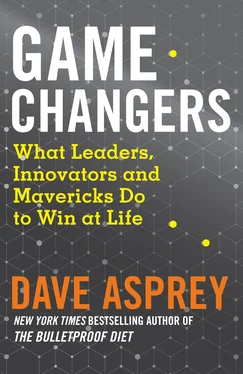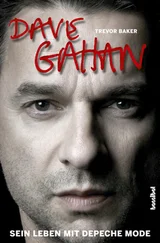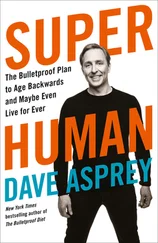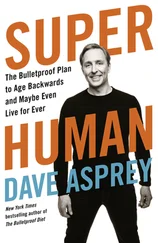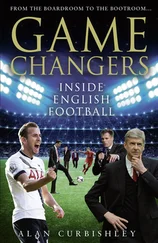Tony sets a decision budget for himself every day. He allows himself only a certain number of decisions, whether they are big or small, and then he “spends” them throughout the day. For this reason, the actions he takes in the morning will largely determine how efficiently he spends the rest of the day. If he wastes a lot of decisions in the morning, he is left avoiding even the simplest of decisions for the rest of the day in order to stay “on budget.”
He didn’t start out that way, though. He used to check his phone and social media accounts as soon as he woke up each day. Sound familiar? From the moment his alarm went off, his head was filled with all the things he felt he needed to do and people he “had to” respond to. Every subsequent step required him to make a decision. Which email should he respond to first? Should he say yes to that opportunity? Should he “like” someone’s post? Should he check out the link a friend sent him? He found that those decisions were wearing down his budget before he even started on the really important tasks he wanted to get to that day.
Over time, Tony learned that as a CEO, his most important daily habits were his decision-making habits, particularly when it came to which opportunities he was going to say yes or no to. And since he began to deplete his decision budget so early in the day, he felt he wasn’t able to make the most effective decisions for his company.
This realization led him to set healthier decision-making habits for himself. Now he prioritizes starting his day with a clear mind. He meditates as soon as he wakes up and then writes down his to-do list. To prioritize this list, he asks himself which of the tasks have the potential to significantly change the outcome of his mission. After practicing this habit for a while, he began to realize that many of the items on his to-do lists weren’t really critical.
The more clarity he gained about his priorities and which tasks would move the needle in the right direction, the more he found he was able to make quick but informed decisions. Eventually he grew so clear on what was important to him and his company that when opportunities arose it was easy for him to say yes or no without having to negotiate an answer or waste time making a decision. If an opportunity was not going to change the outcome, an automatic no was his habitual response.
This isn’t always easy, which is why it’s a good idea to work with a coach to help you figure out what habits are hindering you. I hired Jeff Spencer, who cut his teeth as the lead performance coach for top Tour de France teams—including the winners—nine years in a row before turning to coaching entrepreneurs. A good coach will help you see where you’re wasting energy in your life without knowing it, predict where you’re going to waste energy next as you scale, and hold you accountable for changing it. Jeff made such an impact on me that I interviewed him on Bulletproof Radio , too!
Tony’s solution of creating a decision budget mirrors the findings of one of my favorite studies of all time. In 2010, researchers in Israel studied how judges make decisions about whether or not convicted criminals are approved for parole. 1After examining more than a thousand parole hearings over the course of ten months, they uncovered a fascinating and very strong connection between the decisions and the time of day they were issued: If a hearing was held early in the day, the judge gave a favorable ruling about 65 percent of the time. But as the day went on, the likelihood of a favorable ruling steadily declined all the way to zero after a noticeable bump back up to 65 percent right after lunch. This trend was consistent across many variables, including the type of crime committed, the criminal’s education, and his or her behavior while in prison.
So what was going on with those judges? It turns out that making all of those decisions about whether or not criminals should be granted parole was using up their decision-making budget, also known as willpower. Willpower seems like an abstract concept. Some of us have a lot of willpower and others don’t, right? Wrong! In reality, willpower is like a muscle. You can exercise it to make it stronger, and it gets fatigued when it’s worked too much. When your willpower muscle is fatigued, you start making bad decisions. And you do it without noticing.
The idea of a “willpower muscle” is partly based on our understanding of the anterior cingulate cortex (ACC), a little C-shaped part of your brain right by your temple. Scientists believe that the ACC is the seat of willpower. Think of your ACC as maintaining an energetic bank account. When you start your day, it’s flush with energy, but every time you make a decision or exert mental effort, you withdraw a little bit of the balance. Choosing what to wear in the morning takes out a little bit. Deciding what to make for breakfast uses a little bit more. Bigger decisions, such as deciding whether or not a criminal will be granted parole or not, empty your account faster. If you overdraw your energetic bank account with trivial decisions, your ACC stops responding well and your willpower runs out. That’s when you give in to bad decisions.
This phenomenon is called decision fatigue : the more decisions you make, the worse your judgment becomes. Corporations have known about decision fatigue for years. That’s why they put brightly packaged candy up front at store registers. As you make decision after decision while shopping, you’re depleting your energetic bank account. By the time you’re ready to check out, you’re more likely to be experiencing decision fatigue—and a craving for a quick hit of sugar to give your brain more energy—so you give in and buy a candy bar.
Judges are not immune to this phenomenon; they use up a lot of willpower throughout the day hearing cases. At the end of the day, when the energy balance in their ACC is running low, it becomes easier to deny parole than to try to negotiate a more complicated decision. This also helps explain why the judges in the study granted more paroles right after lunch than at other times in the afternoon; their ACCs had just received a hit of energy.
One wonders whether the type of lunch they ate was an important variable. It only makes sense that a lunch designed to deliver sustained energy would lead to better decisions. Silicon Valley lore says that many years ago, the once dominant computer company Sun Microsystems banned pasta from the lunch menu used for on-site meetings because its executives noticed that meetings tended to tank after high-carb lunches. The reality is that what you eat does impact your willpower—though it is easier to stop making meaningless decisions than it is to change what you eat (I do both).
The good news is, now that you know about decision fatigue, you can be sure to schedule all of your parole hearings for the morning. Even better, you can free up more willpower to start making better decisions so that you don’t end up being convicted of a crime in the first place! You can do this in two ways: by building up the amount of energy stored in your ACC and by reducing the number of decisions you make throughout the day to preserve your mental energy.
You can build your “willpower muscle” the same way you strengthen any muscle in your body: by doing hard things you don’t want to do. A simple trick I use is to keep a heavy-duty spring-loaded hand-grip trainer on my desk. When I think about it, I squeeze it until it burns and my arm tells me to stop and then keep squeezing . Another technique I use is to hold my breath until my lungs scream at me to breathe and then hold it longer . When you successfully do the things you don’t want to do, everything else seems easier by comparison. Your willpower grows. But consider not pushing your willpower on a day when you have other major decisions to make. On those days, don’t burn out your willpower reserves before a crucial meeting or presentation.
Читать дальше
